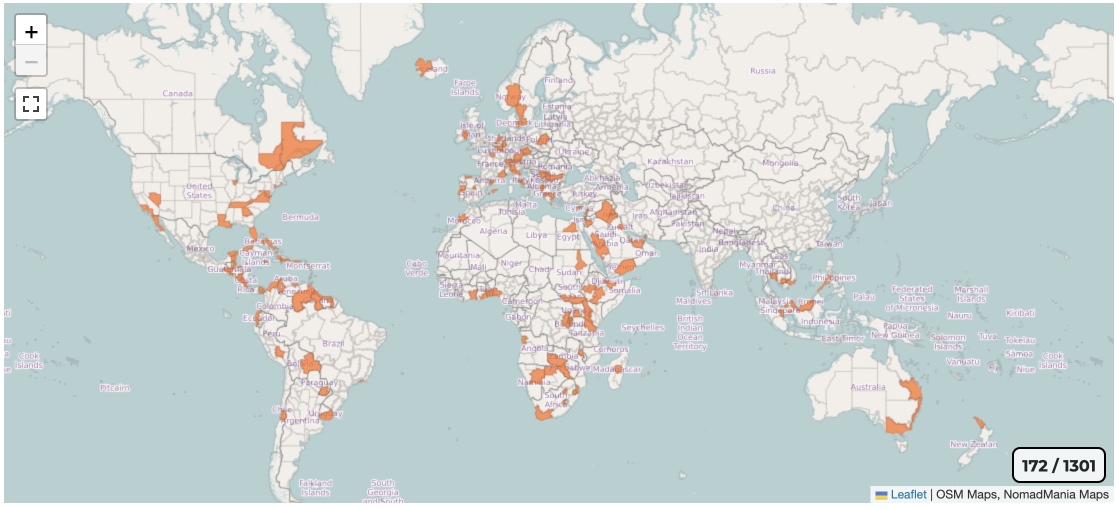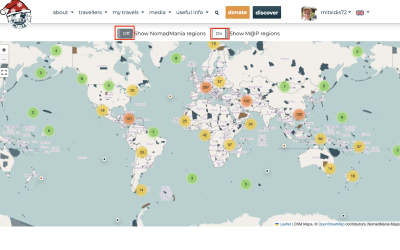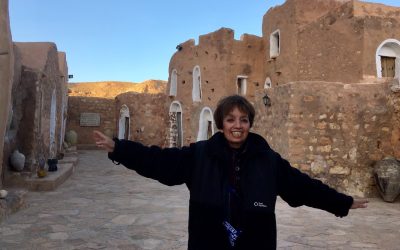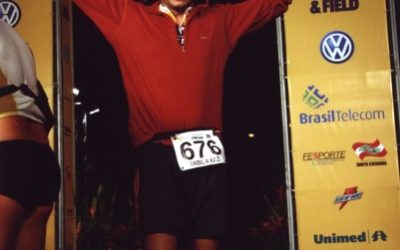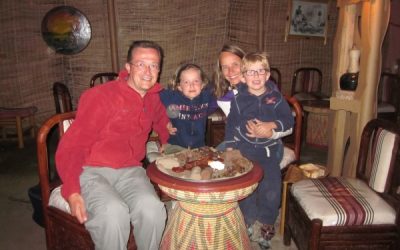Cameron Mofid is one of the youngest members of the NomadMania community, visiting 120 countries at just 23 years old. A former world-ranked junior tennis player, Cameron fell in love with travel when competing internationally on the junior tour, and later working on the professional tour.
Struggling with obsessive-compulsive disorder, Cameron is an outspoken advocate for breaking the stigmas around mental health disorders, giving a TEDx Talk and speaking on NBC’s Today Show about his experiences. In December of 2022, he graduated with his MBA as valedictorian from the University of Miami, and recently founded Humanity Effect, which is a nonprofit organization that performs vital humanitarian projects in underserved communities.
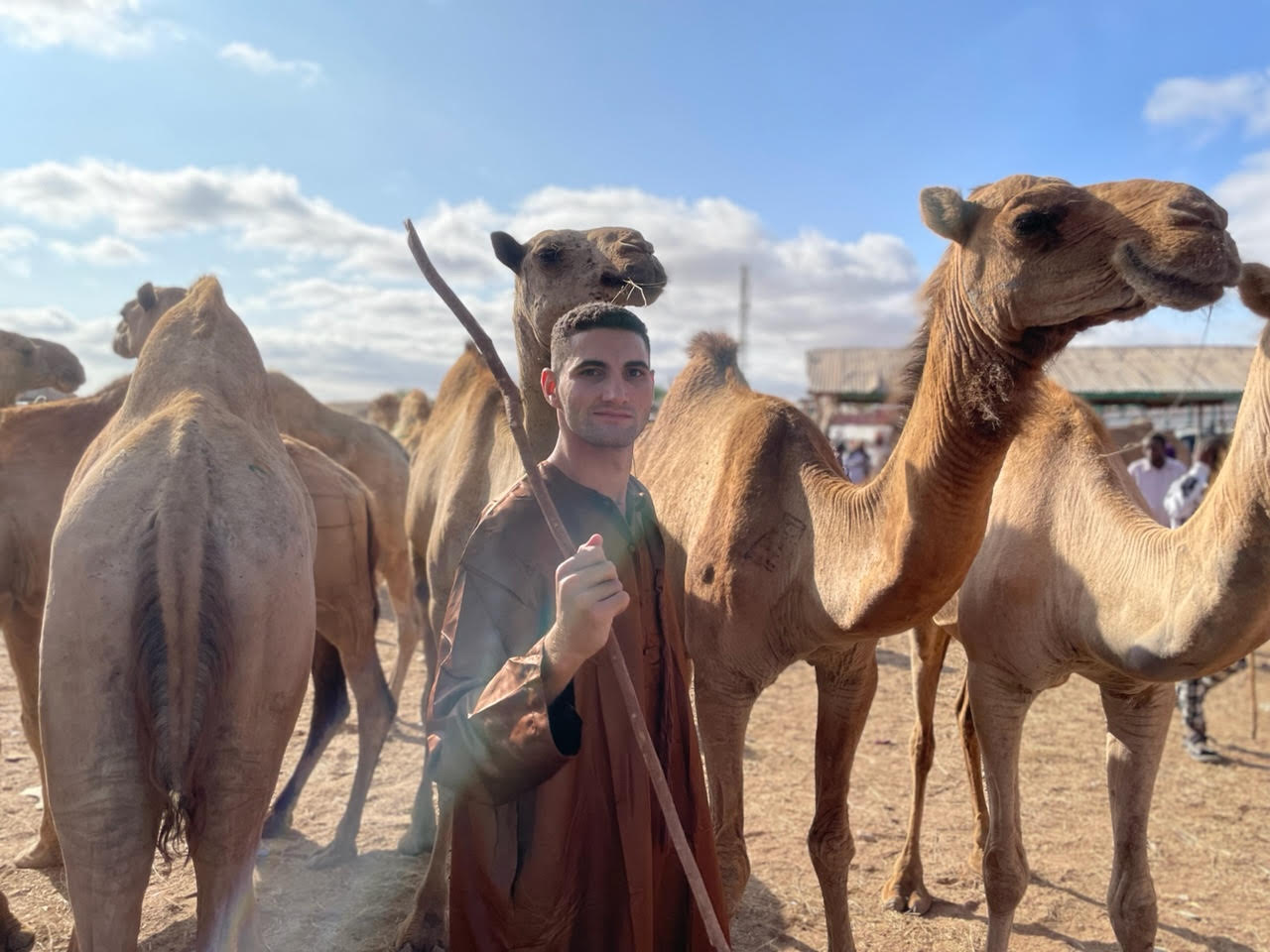
In his memoir, he shares his struggles with depression during his adolescence, and how travel ultimately turned his life around. Cameron shares his story in his memoir “A Garage-Wall Map to an Odyssey Around the World.”
“1,2,3, Uganda!” my grandmother would shout, facing a map in the garage of my childhood home in San Diego. It’s a game we used to play as children. My grandmother would call out countries, and my brother and I would compete to be the first to point to them.
To this day, I’m not sure why Uganda was grandmother’s favorite country to call out, but I suppose that randomness is what makes those memories as fond as they are. Whether it be burying myself in a geography book during reading time in the fourth grade or spending three weeks at a UN themed sleepaway camp during middle school, I was always fascinated with learning about the world through my mind’s eye. But looking back, it was more than just a fascination. It was an escape.
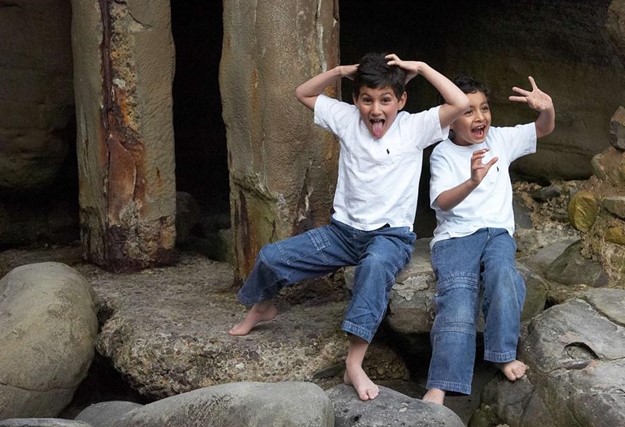
When I was a child, I began exhibiting signs of obsessive-compulsive disorder (OCD). Many people think that OCD is just an inclination to be extra organized. In actuality, it’s an extremely debilitating disorder where an individual’s unwanted thoughts, or obsessions, cause them to perform repetitive behaviors, or compulsions, that significantly interfere with their ability to lead their lives.
While the disorder manifests itself very differently in different people, examples of compulsions include excessive hand washing, needless rearranging of objects, or mentally counting in patterns repetitively. In my case, it started as subtle compulsions that would only take a few minutes out of my day and gradually turned into a monster that would consume hours at a time.
I didn’t know what was wrong with me, and the thought of others finding out about it became a source of anxiety in itself. On paper, nothing in my life looked out of place. I came from a comfortable background, got good grades, and was a nationally ranked tennis player. Regardless, by the time I was 17, I was severely depressed. I felt like a prisoner in my own head and needed a way to break out.
My attempted breakout transpired by moving across the country to Florida, where I attended a boarding school for tennis players for my senior year of high school. It was there that I discovered my love of travel. I was the only one in my graduating class who spoke English as a first language, and being surrounded by players from all over the world was a cultural education in itself.
In the fall, I competed in countries across the Caribbean, and in the spring, I traveled to Spain and Germany for internships at professional tournaments. Shortly after, I was invited to join the team at tennis star Nick Kyrgios’ Foundation. Although I still struggled immensely and wasn’t yet able to speak about my mental health struggles, it was the first time in years that I felt that I was in more control of my life than my OCD.
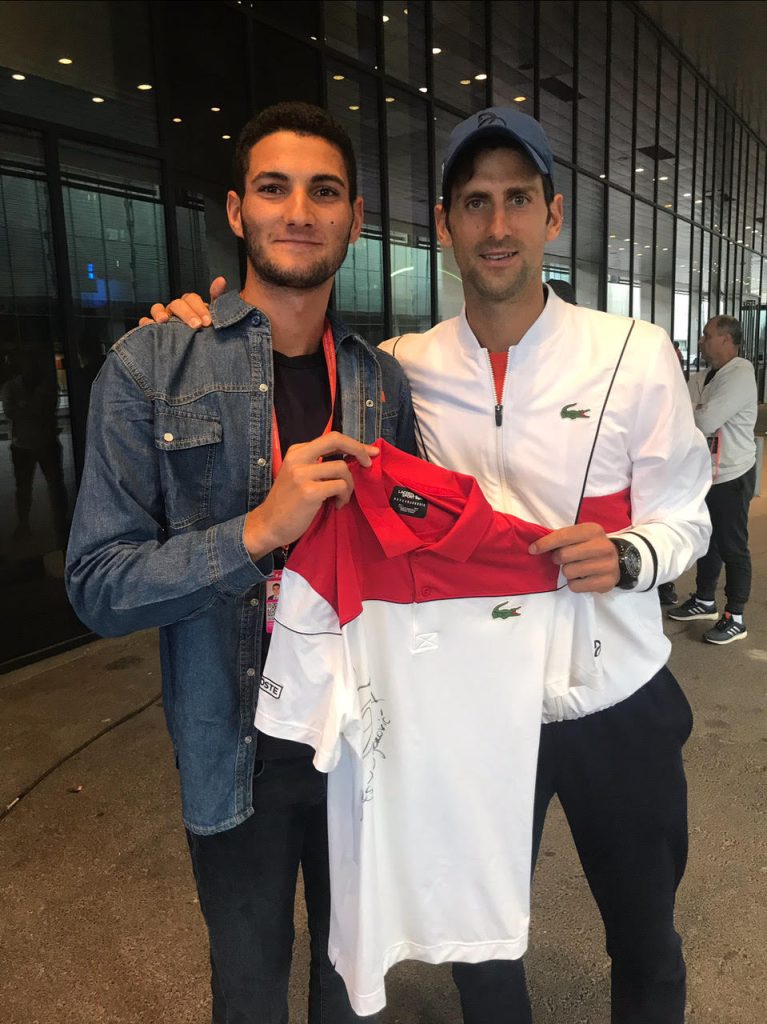
Given my improvement and the work opportunities, I decided to take a gap year before starting at the University of Miami. Between internships, foundation work, and general wanderlust, I visited 38 countries that year. Hopping on planes to new countries was indescribably freeing, and cultivating new friendships with strangers enhanced my life with a profound sense of meaning, especially given that I had pushed so many people away during my adolescence.
When I started university in the fall of 2019, I traveled as much as possible, whether it be during breaks or occasionally missing classes for a weekend trip to a nearby country. After nearly a decade of hiding my OCD, I slowly began opening up to my friends and family about my experience. With that no longer weighing me down, my life improved dramatically.
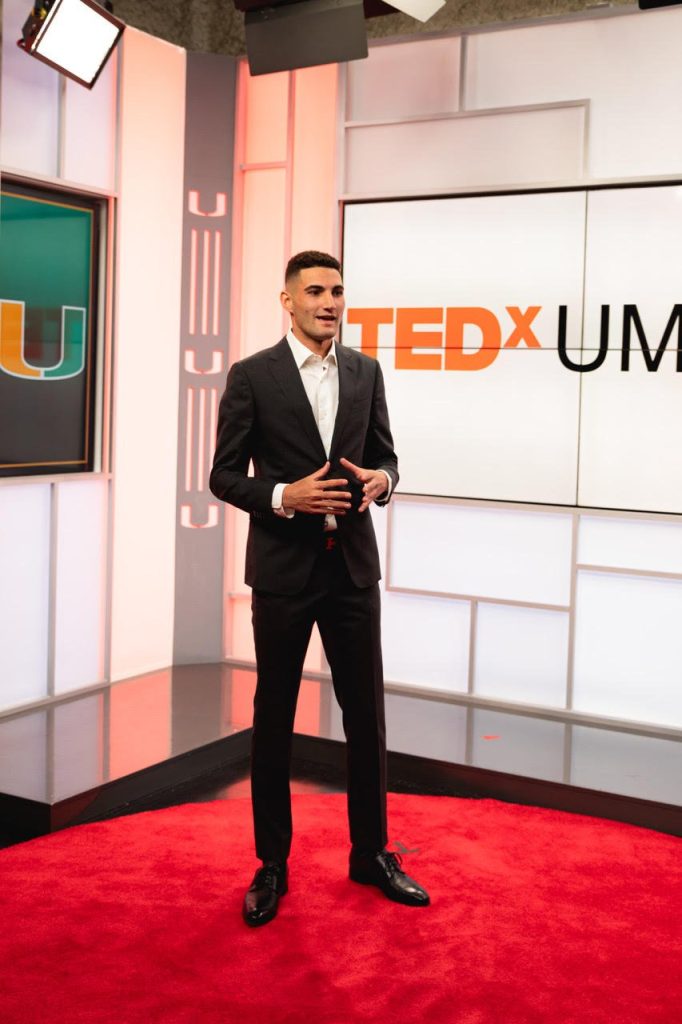
In September of 2020, I visited my hometown of San Diego for the first time since I’d left over three years prior, which was a place I once never thought I’d be able to return to. In May of 2022, I graduated a full year early with my bachelor’s degree, and seven months later, I graduated again with my master’s degree as valedictorian.
At the time of writing this in May of 2023, I’ve visited 120 countries in my attempt to visit every country in the world.
I’ve also recently launched Humanity Effect, which is a nonprofit organization that performs vital humanitarian projects in underserved communities.
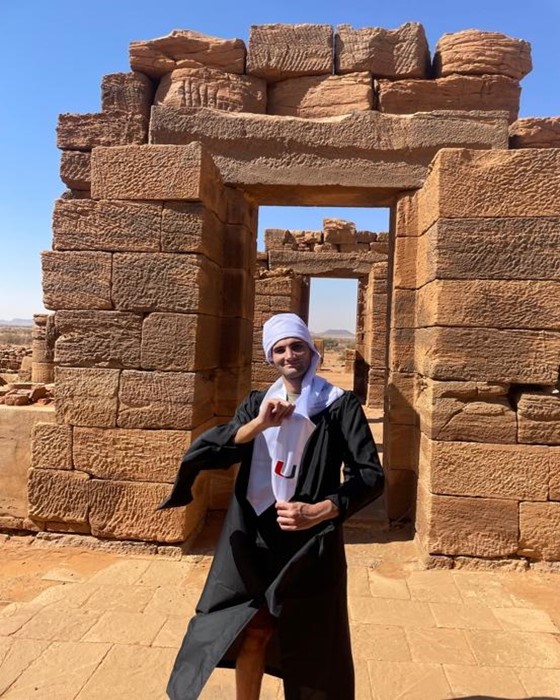
Despite that success, every day is still a challenge. On my good days, I’m able to lead my life with minimal disruption. On my bad days, even leaving my apartment is difficult. I’ve accepted the fact that my OCD is a part of me, and that it might be for the rest of my life. And that’s ok.
But I know I have a support group who’s there to love me unconditionally, and I know that I’ll be able to overcome any obstacles that come my way. While my mission to visit every country in the world is primarily driven by my love of travel, it’s also an opportunity to prove to myself that I can do something my OCD should have prohibited me from doing. OCD is about maintaining control, and travel is in many ways about relinquishing it all.
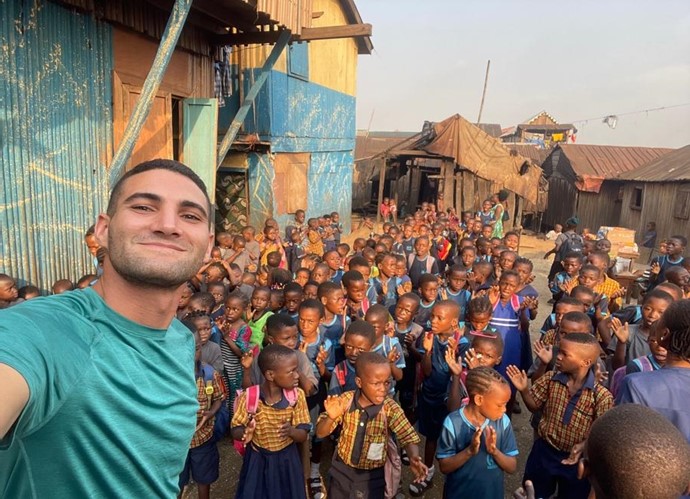
I’m speaking so openly about my experience to raise awareness for a very misunderstood mental health disorder. More importantly, I want to demonstrate that our lives aren’t defined by our struggles, but by how we overcome them. Travel taught me that.
In my case, that knowledge turned my life around in ways that I only imagined in my wildest of childhood dreams. Because as it turns out, the geography game I played with my grandmother in the garage of my childhood home wasn’t only an escape, but also a glimpse into my future.


